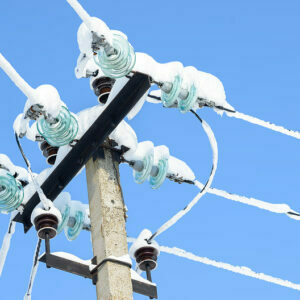Having heard witnesses say America’s largest power grid remains unreliable nearly a year after a close call with blackouts last Christmas, Pennsylvania State Sen. Gene Yaw called the testimony “a little scary.”
Glen Thomas, a former Pennsylvania Public Utility Commission chairman who consults on grid issues, testified during a joint hearing of Pennsylvania and Ohio legislators. “Reliability challenges are likely to get worse, not better,” he said.
Other witnesses were no more encouraging.
“We cannot operate a system with 100 percent renewables,” said Asim Haque, a senior vice president of the PJM Interconnection, which serves 65 million people in all or parts of 13 states and the District of Columbia.
Haque’s statement contradicts what many “green” energy proponents claim about wind and solar power—technologies that account for most new energy sources proposed for PJM because subsidies and regulations have made more reliable sources uneconomical.
Without grid reliability in Pennsylvania (the nation’s largest electricity exporter), there is none in PJM. And reliability has often taken a back seat to the politics of energy policy. That puts Pennsylvania policymakers at the heart of the matter.
Repeated—even urgent—warnings abound that the power grid is increasingly prone to failure. Some of these warnings come straight from grid overseers, including the Federal Energy Regulatory Commission and the North American Electric Reliability Corporation (NERC).
In PJM and neighboring regions, severe cold “can lead to energy emergencies as operators face sharp increases in generator forced outages and electricity demand,” according to a recent NERC assessment. “Forecasted peak demand has risen while resources have changed little in these areas since Winter Storm Elliot (December 2022) caused energy emergencies across the area.”
The bottom line is Pennsylvanians are in dire danger of life-threatening winter blackouts. Let’s not forget the 2012 cold snap in Texas that killed more than 200 people and caused billions of dollars in economic damages.
The reason is painfully clear: States and utilities are shutting down reliable power plants, especially coal-fired and nuclear facilities. They are replacing these reliable sources with unreliable sources, such as wind and solar generators, which do not work on cold, windless nights.
Since its present program clearly is not working, PJM has proposed significant changes to how it secures reliable power plants. Commendable as PJM’s effort is, it has been a long time coming.
Grid reliability wilted for years under conflicting state and federal policies that favored wind and solar at the expense of more reliable fossil fuel and nuclear plants. In addition, ever more stringent federal environmental policies have forced the closure of some of the world’s cleanest coal-fired plants, increasing dependence on other less reliable or more vulnerable sources during cold weather.
For more than a decade in Pennsylvania, subsidies for so-called alternative energy sources have worked against grid reliability. In 2019, then-Gov. Tom Wolf tried to impose a carbon tax on electricity generation by joining the Regional Greenhouse Gas Initiative (RGGI). Wolf’s proposal not only discouraged the construction of new natural gas-fired plants but also hastened the July closure of the state’s largest coal-fired plant at Homer City. Meanwhile, developers canceled plans in 2023 for two gas-fired power plants after failing to get approvals from a state regulatory regime described by some industry sources as the nation’s most hostile.
Although a court ruling killed the carbon tax, Gov. Josh Shapiro has decided to appeal RGGI’s dismissal to the state Supreme Court. Separately, he has proposed increasing alternative energy subsidies. Both actions go in exactly the wrong direction.
Instead, here are some things for Pennsylvania policymakers to consider as a course correction:
- Focus first on cold winter nights with no wind or solar power. Obvious solutions are adequately winterized gas-supply systems and coal and nuclear plants with on-site fuel supplies that protect against the vulnerabilities of just-in-time pipeline deliveries.
- Stop claiming wind and solar can replace coal, gas, and nuclear. They can’t.
- Allow construction of pipelines to supply fuel to gas plants. More than two-thirds of voters support such infrastructure development, according to a poll by the Commonwealth Foundation.
- Resist federal regulations that undermine reliability and change state policy that does likewise.
Grid reliability can be complicated, but it should not be scary.
Please follow DVJournal on social media: Twitter@DVJournal or Facebook.com/DelawareValleyJournal

